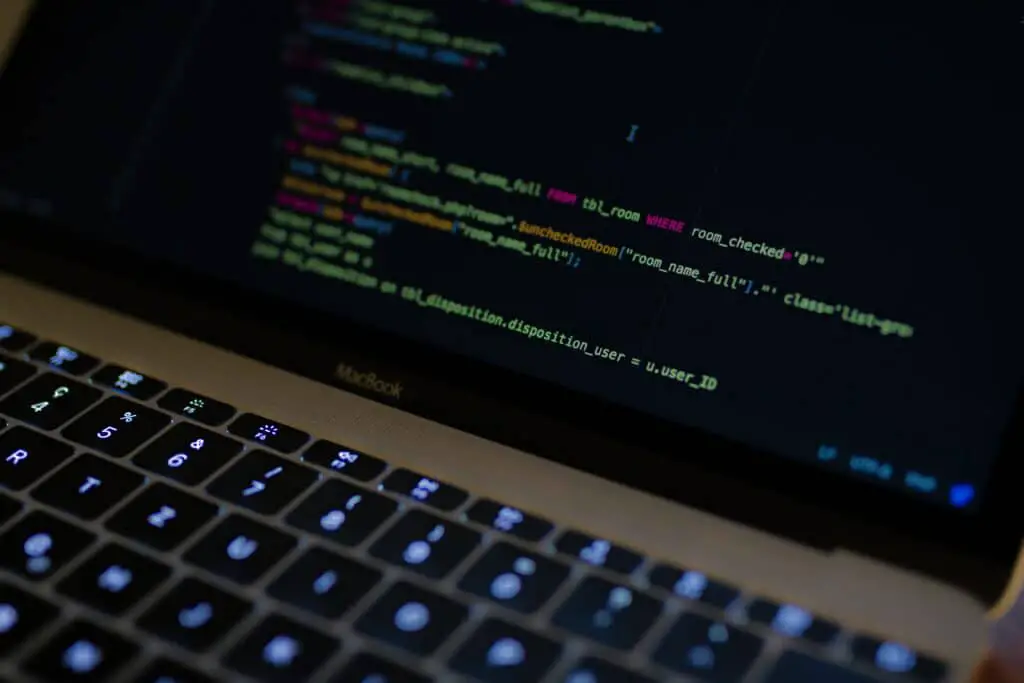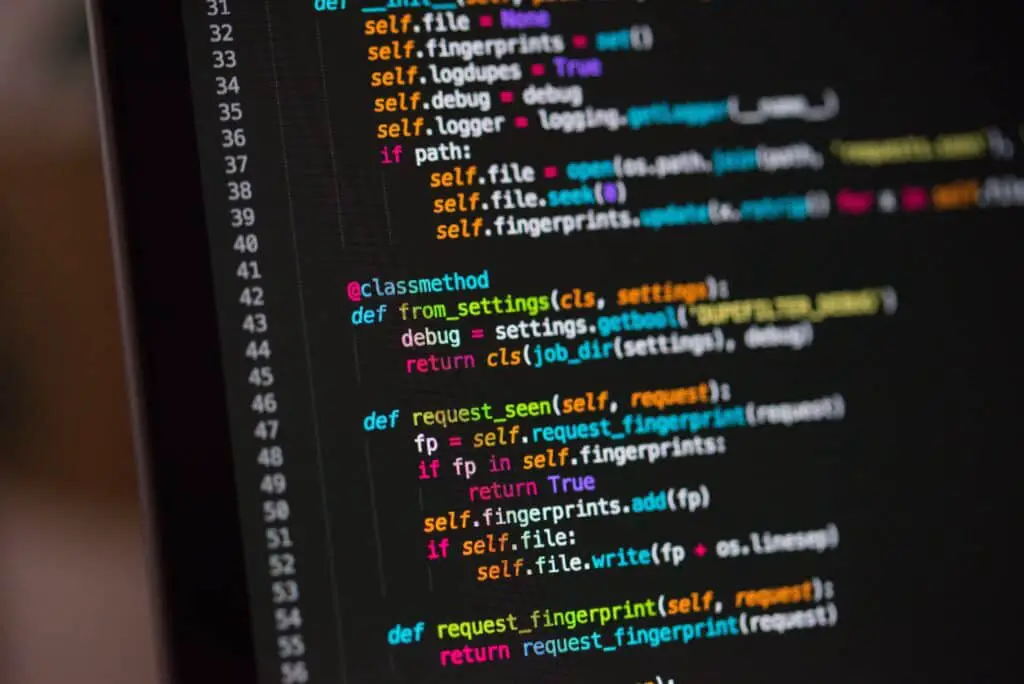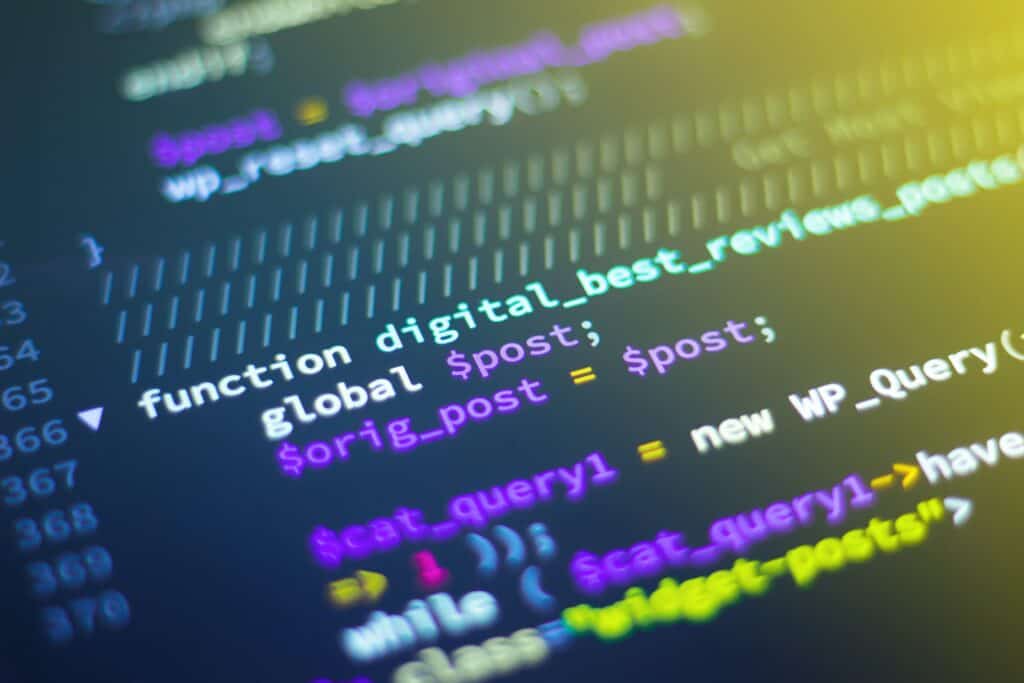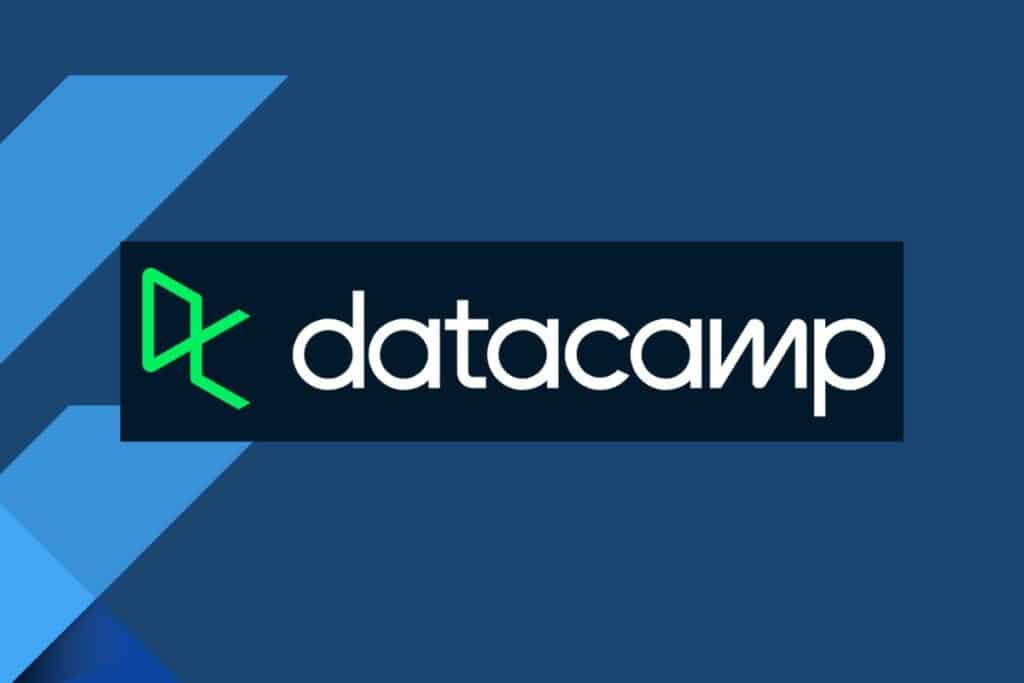This post may contain paid links to my personal recommendations that help to support the site!
You’ve heard about SQL for being a powerful language in querying databases and how it can be used for some data analysis. You might have wondered: is SQL a programming language? I’ve done quite a handful of research, so here’s the answer:
SQL is a programming language because it is Turing complete and can perform specific tasks on a computer. It is a domain-specific language used for communicating with relational databases. However, SQL can be considered a general-purpose programming language when extended with procedural languages.
Now that you’ve read the short and direct answer, you should get a much clear picture of where SQL belongs in the world of programming languages. If you’re relatively new to programming languages, this might all just be very foreign and confusing to you. Do read on for a full guide to (hopefully) put your troubled queries (pun not intended) to rest.
What is SQL (Structured Query Language)?

SQL is a well-loved language used by many data analysts and data scientists for a reason. Let’s have a deeper look and begin with some basic definitions of what exactly is SQL.
SQL or Structured Query Language is a domain-specific programming language that is mostly used for querying relational SQL databases or RDBMS (relational database management system. SQL is used to perform querying of data, manipulation of data, defining data and data access control.
Technically, SQL is considered a declarative language, procedural extensions can be added to provide added functionality similar to a general-purpose programming language.
Additionally, the SQL language is specifically made for querying structured data in the form of relational tables and its syntax follows natural language. This means that beginners like you and I are able to pick up basic functions and SQL statements pretty easily, even without any prior programming experience.
What are Programming Languages?

What EXACTLY are they? If you come from a non-computing background like me, you’d be pretty lost when it comes to the basic definitions in computer science. Allow me to give a simple and clear definition of what programming languages are, in a beginner-friendly and digestible way.
Programming languages are languages of written instructions for a computer or computing device to execute the desired function or machine output. The output typically involves some computing or running an algorithm. A programming language comprises both its syntax and semantics.
Basically, a programming language is a way for you to speak to your computer through a specific set of instructions! These instructions are written and programmed to allow certain computations to occur in your computer to provide you with the outcome you want!
Here’s a quick video I found especially useful in explaining the concept of what a programming language is. Do give it a watch if you’d like an illustrated example of this definition!
Now that you’re slightly clearer on what exactly programming languages are, let’s have a further look into why SQL can be considered as a programming language.
Why is SQL Considered a Programming Language?

With all the confusion on SQL being wrongly classified as a non-programming language, our next question would be why is SQL considered a programming language?
SQL is a domain-specific programming language because it can perform executable instructions that can be understood by a computer but it does not behave like a general-purpose programming language, similar to Python and Java. SQL is a Turing complete language, which is also a requirement for all programming languages.
1. SQL is Not a General-Purpose Programming Language
You’d have to take note of some differences when determining if SQL is a programming language as well. SQL is only used in specific situations, like when querying databases, and therefore can only be classified as a domain-specific programming language.
Therefore, SQL can be considered a programming language but cannot be considered as a general-purpose programming language.
To help you better understand the exact definition of a general-purpose programming language, I found the perfect explanation video from The Computer Science Education Research Group of the University of Adelaide.
This video highlights that general-purpose programming languages are designed to be used across a wide range of domains, unlike SQL. Do watch the video for a more detailed explanation!
2. SQL is a Turing complete language
SQL is considered a programming language because of its Turing complete nature. To be considered Turing complete, a language has to be able to understand and execute any computational problems. Allow me to elaborate in the section below.
What is Turing Completeness and How Does it Affect SQL as a Programming Language?

A Turing complete programming language is a language that can perform everything a Turing machine can. In principle, if a programming language can simulate a Turing machine, it is Turing complete. Here’s a helpful description provided from Wikipedia for Turing machines.
A Turing machine is a mathematical model of computation that defines an abstract machine that manipulates symbols on a strip of tape according to a table of rules. Despite the model’s simplicity, given any computer algorithm, a Turing machine capable of simulating that algorithm’s logic can be constructed.
Wikipedia
I’ve also found a really informative video from Computerphile on YouTube to better explain the concept of Turing completeness, from the perspective of someone with much more experience than myself. The video explains the concept in simple terms, with some additional details if you’re curious to find out more! I’ve added the video below for your convenience.
How Can Procedural Languages Extend the Use of SQL?

You’ve read from my post above that SQL can become similar to that of a general-purpose programming language through the use of procedural languages to extend the use of SQL. Now, this might seem a little confusing to some of you so allow me to elaborate on what procedural languages are and how they extend SQL as well as some examples of them.
Procedural languages are programming languages that specifically involve the use of functions, conditional statements, and variables to write programs recognizable by computers to achieve a certain computational output. Procedural languages can be used as extensions to SQL for these added features to achieve something similar to a general-purpose programming language. Examples of procedural language extensions to SQL include Procedural Language/PostgreSQL and PL/SQL.
Here’s a summarized table of 3 of the most commonly-used procedural language extensions used with SQL.
 | |||
| Procedural Language | PL/pgSQL (PostgreSQL) | PL/SQL (Procedural Language for SQL) | Transact-SQL (MS SQL Server) |
| Created By | PostgreSQL (Open-source) | Oracle Corporation | Microsoft Corporation and Sybase Inc. |
| Procedural Features | – Adds control structures such as functions, conditionals, and loops to SQL – Allows creation of functions and trigger procedures – Allows all user-defined types, functions, and operators to inherited | – Allows conditions and loops – Allows declaration of constants and variables, procedures and functions, types and variables of those types, and triggers. – Can handle exceptions | – Allows declaration of local variables – Has changes to the DELETE and UPDATE statements. |
| Advantages | 1. Portable and easy to learn 2. Open-source 3. All data types, operators, and functions of SQL can be used. | 1. Allows object-oriented style of programming 2. Able to handle triggers that allow users to invoke automatically whenever a specified event occurs | 1. Used in Microsoft SQL Server, a common database 2. Stored procedures in SQL Server are used, which allow a user to pass parameters. |
Through the use of such extensions with SQL queries, SQL is able to perform similarly to that of a general-purpose programming language! However, if you were to strictly categorize SQL when used as a standalone language, SQL would still be considered programming, regardless of the usage of extensions.
Where Can I Start Learning SQL?

Now that we’ve seen how SQL can be considered as programming, you should have a deeper understanding of the exact definitions and differentiations between the SQL types. At this stage, I’m pretty positive that you’ll be thinking of how you can learn to write SQL code for yourself.
Not to worry, I can provide a list of the best resources out there when it comes to starting your learning journey in SQL. Take a look at the list I’ve included below!
| Title | Type | Links | |
| 3 | SQL: The Ultimate Beginners Guide: Learn SQL Today | Book | Amazon Link |
| 4 | The Complete SQL Bootcamp 2021: Go from Zero to Hero | Online Course | Udemy Link |
| 5 | Introduction to SQL | Online Course | Datacamp Link |
| 6 | Google Data Analytics Professional Certificate | Online Course | Coursera Link |
Those were just some of my own recommendations for learning, and I would definitely recommend a blended approach to learn a new language like SQL.
For a beginner, learning a language can be tough, so having a trusty book beside you as a go-to for basics is a must-have. So I would recommend just picking one out of the 3 abovementioned books to start with!
In addition to a book, you should also complement your learning with online resources to help you learn in video format or even code-along exercises. These should encourage you to have more practice with the language itself to boost your confidence in your coding skills. You might even have a better time learning with a course that ends with a capstone project to solidify your learning!
One such example (that I’m trying out for myself) is the Google Data Analytics Professional Certificate, which focuses on SQL, R, and spreadsheets to help you create a project that is perfect for a career in data analytics.
I’ve put together a complete review of that certificate, which you can check out over here.
In programming, no matter which language it is, you’d most definitely need some practice, which only comes with more coding! SQL is no different from the rest and needs some amount of practice in programming so do not give up and keep learning!
Final Thoughts
SQL is a one-of-a-kind language that is too specific for its domain – querying from relational database management systems. This is why many programmers can get confused over where SQL belongs in the world of programming languages. I hope you have learned something today about how SQL is a domain-specific language and its differences from a general-purpose programming language that many programmers use. Thank you for reading!
My Favorite Learning Resources:
My Recommended Learning Platforms!
| Learning Platform | What’s Good About the Platform? | |
|---|---|---|
| 1 | Coursera | Certificates are offered by popular learning institutes and companies like Google & IBM |
| 2 | DataCamp | Comes with an integrated coding platform, great for beginners! |
| 3 | Pluralsight | Strong focus on data skills, taught by industry experts |
| 4 | Stratascratch | Learn faster by doing real interview coding practices for data science |
| 5 | Udacity | High-quality, comprehensive courses |
My Recommended Online Courses + Books!
| Topic | Online Courses | Books | |
|---|---|---|---|
| 1 | Data Analytics | Google Data Analytics Professional Certificate | – |
| 2 | Data Science | IBM Data Science Professional Certificate | – |
| 3 | Excel | Excel Skills for Business Specialization | – |
| 4 | Python | Python for Everybody Specialization | Python for Data Analysis |
| 5 | SQL | Introduction to SQL | SQL: The Ultimate Beginners Guide: Learn SQL Today |
| 6 | Tableau | Data Visualization with Tableau | Practical Tableau |
| 7 | Power BI | Getting Started with Power BI Desktop | Beginning Microsoft Power BI |
| 8 | R Programming | Data Science: Foundations using R Specialization | Learning R |
| 9 | Data Visualization | – | Big Book of Dashboards |

